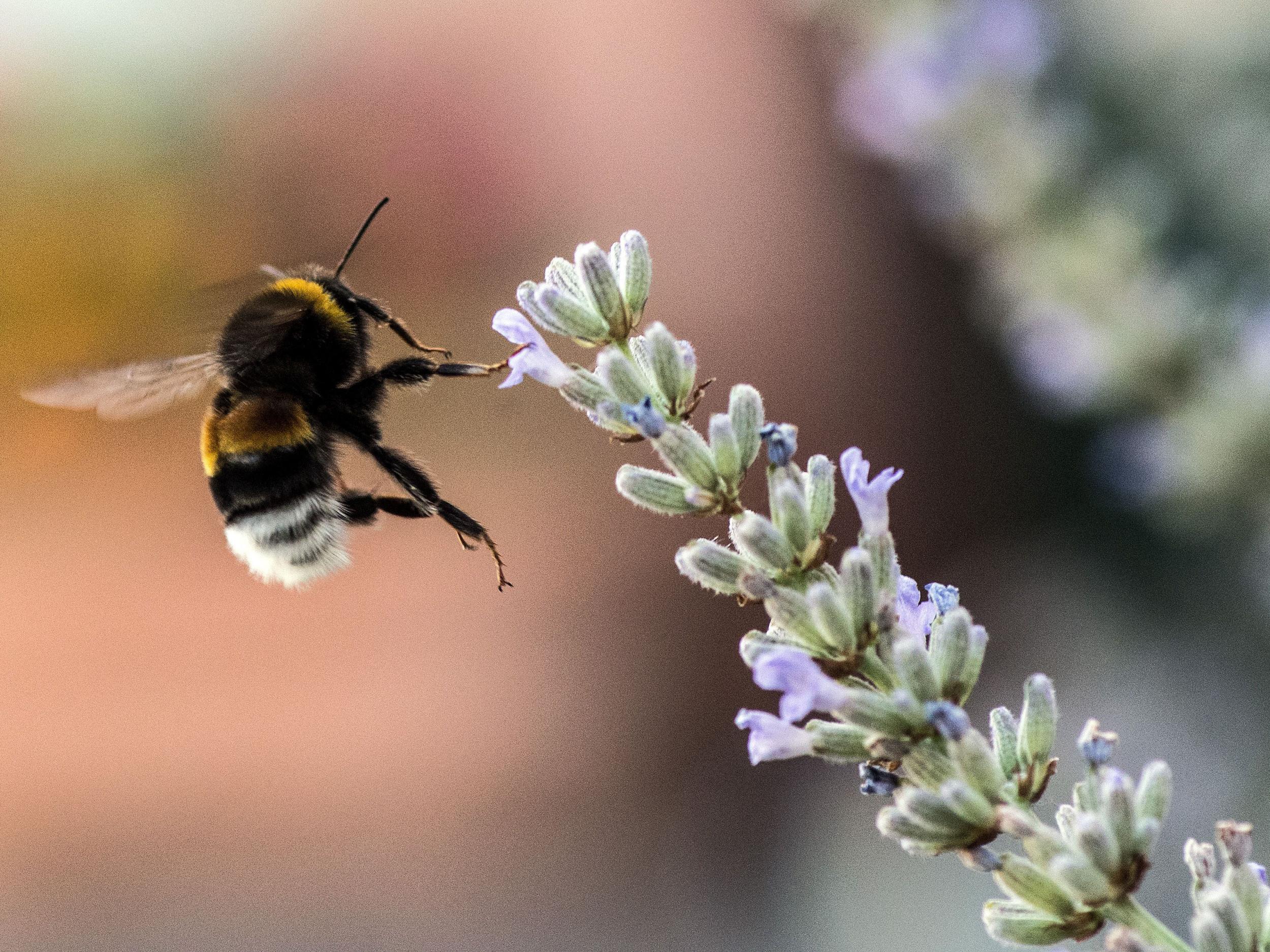Bee-harming pesticides could face complete Europe-wide ban after EU report confirms threat
Comprehensive assessment reveals outdoor use of neonicitinoids poses severe risk to all bees, leading to calls for further restrictions across the continent

Your support helps us to tell the story
From reproductive rights to climate change to Big Tech, The Independent is on the ground when the story is developing. Whether it's investigating the financials of Elon Musk's pro-Trump PAC or producing our latest documentary, 'The A Word', which shines a light on the American women fighting for reproductive rights, we know how important it is to parse out the facts from the messaging.
At such a critical moment in US history, we need reporters on the ground. Your donation allows us to keep sending journalists to speak to both sides of the story.
The Independent is trusted by Americans across the entire political spectrum. And unlike many other quality news outlets, we choose not to lock Americans out of our reporting and analysis with paywalls. We believe quality journalism should be available to everyone, paid for by those who can afford it.
Your support makes all the difference.The threat posed to bees by pesticides has been confirmed in a major new EU evaluation that could pave the way for a Europe-wide ban on the most harmful chemicals.
According to the new report, neonicotinoid pesticides put both honeybees and wild bees at risk when used in any outdoor setting.
In the past, these chemicals have been linked to “large-scale population extinctions” in bees. As these insects are vital for crop pollination, their loss would be a disaster for food production.
The report by the European Food Safety Authority (Efsa) assessed data from three neonicotinoids: clothianidin, imidacloprid and thiamethoxam.
After analysing the findings from nearly 600 studies and consultation with external experts, the report’s authors concluded that “most uses of neonicotinoid pesticides represent a risk to wild bees and honeybees”.
There is currently a ban on neonicotinoid use on flowering crops in the EU. However, the new report suggests this is not sufficient, as the use of these chemicals in any outdoor setting poses a high risk to bees.
Bees face chronic exposure to these chemicals, as they persist in the environment and are dispersed to other plants besides the ones they were initially applied to.
However, the Efsa authors also concluded that when used indoors, for example in greenhouses, neonicotinoids do not threaten bees in the same way.
Jose Tarazona, head of Efsa’s pesticides unit, said: “The availability of such a substantial amount of data as well as the guidance has enabled us to produce very detailed conclusions.
“There is variability in the conclusions, due to factors such as the bee species, the intended use of the pesticide and the route of exposure. Some low risks have been identified, but overall the risk to the three types of bees we have assessed is confirmed.”
The evidence adds to the case for a neonicotinoid ban that covers all outdoor crops, and its release has led to fresh calls for more extensive restrictions.
Environment Secretary Michael Gove has already said the UK will support tougher restrictions, but other EU nations such as Germany and Spain have been unwilling to commit. They have previously stated they would await Efsa’s results.
A European vote on such a ban could happen as soon as March, and if a majority of countries vote for the proposal it will be imposed on all member states.
“This long-awaited report confirms the significant threat these neonicotinoid pesticides pose to our bees. We have been playing Russian roulette with the future of our bees for far too long,” said Friends of the Earth bee campaigner Sandra Bell.
“The UK Government has already said it will support a complete ban on the outdoor use of these three bee-harming chemicals – a move that is fully justified by this report. Other EU countries must now back a tougher ban too.”
Scientists have also noted the role these findings could play in influencing European policy on harmful pesticides.
“This report certainly strengthens the case for further restrictions on neonicotinoid use across Europe,” said Professor Dave Goulson, a biologist at the University of Sussex.
“This is an important announcement by Efsa that most uses of neonicotinoids are a risk to all bee species. Importantly they identify that high risk does not result from direct exposure to non-flowering crops, but to subsequent indirect exposure from field margins, adjacent crops and succeeding crops,” said Professor Christopher Connolly, a neurobiologist at the University of Dundee.
“A highly restricted use of neonicotinoids would reduce this environmental stress and retain neonicotinoids as important pest control agents for use in severe situations.”
Join our commenting forum
Join thought-provoking conversations, follow other Independent readers and see their replies
Comments